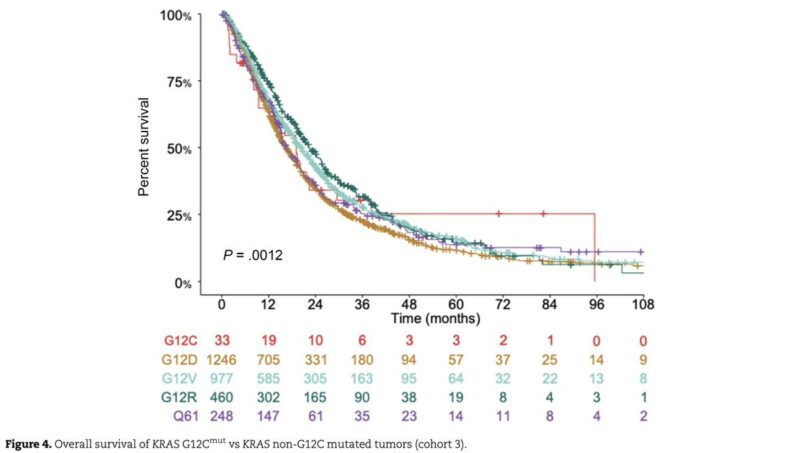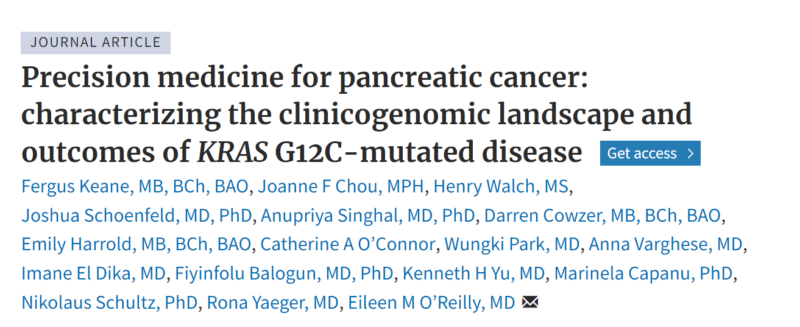Sergio Cifuentes, Cancer Research Project Manager at CENEIT Mexico, shared on X:
“Check out my latest Insights – Characterizing the Clinico-genomic Landscape and Outcomes of KRAS G12C–Mutated Pancreatic Cancer.
Characterizing the Clinico-genomic Landscape and Outcomes of KRAS G12C–Mutated Pancreatic Cancer
- Prevalence: KRAS is the most common oncogene alteration in pancreatic ductal adenocarcinoma, and KRAS G12Cmut found in 1%-2% of pancreatic ductal adenocarcinoma cases.
Key Findings
- The median age of the patients was 67, with 56% being female and a median BMI of 29.2 kg/m2. Sixty-seven percent had smoked at some point in their lives.
- Survival Rates: Median overall survival was 13 months for stage IV and 26 months for stage I-III.
- Commonly co-altered genes: TP53 (73%), CDKN2A (33%), SMAD4 (28%), and ARID1A (21%).
- Overall survival did not differ between KRAS G12Cmut and non-G12C KRAS pancreatic ductal adenocarcinoma.
Clinical Implications
- Distinct Phenotype: KRAS G12Cmut linked to unique clinical characteristics in pancreatic cancer.
- Genomic Similarities: Resemblance to non-G12C KRAS mutations, highlighting the significance of ARID1A co-mutations.
- Treatment Potential: Targeting KRAS G12C sets the stage for broader KRAS-focused therapies in pancreatic cancer.”

Authors: Fergus Keane, Joanne F Chou, Henry Walch, Joshua Schoenfeld, Anupriya Singhal, Darren Cowzer, Emily Harrold, Catherine A O’Connor, Wungki Park, Anna Varghese, Imane El Dika, Fiyinfolu Balogun, Kenneth H Yu, Marinela Capanu, Nikolaus Schultz, Rona Yaeger, Eileen M O’Reilly,

Source: Sergio Cifuentes/X
